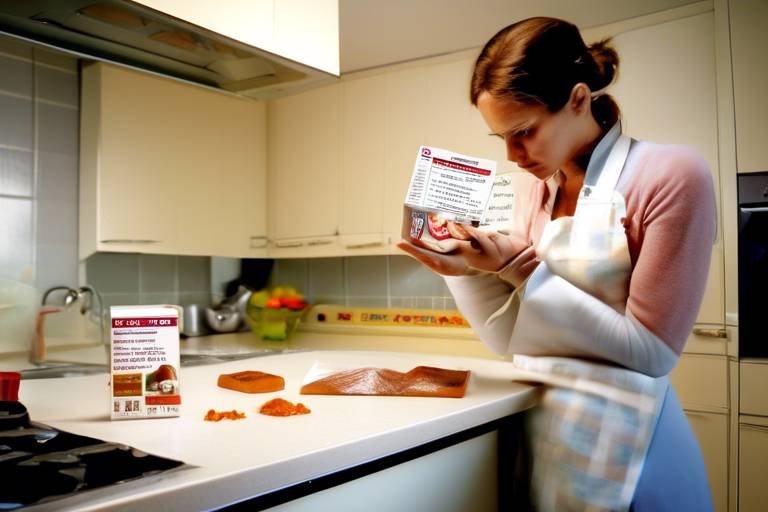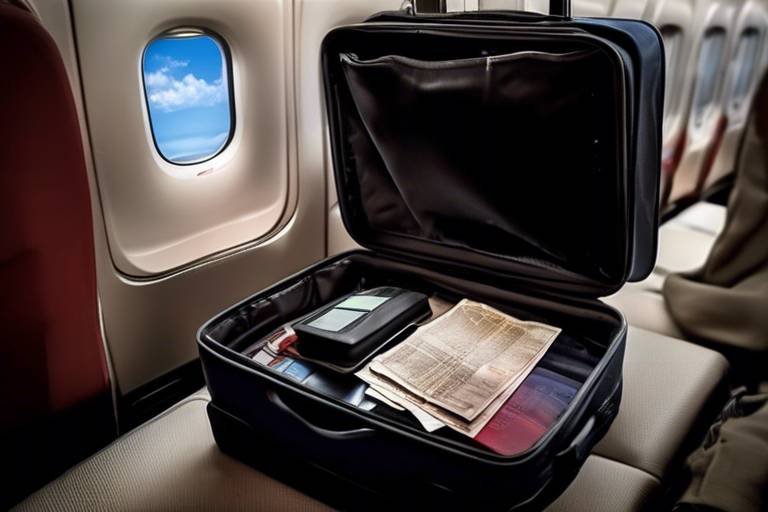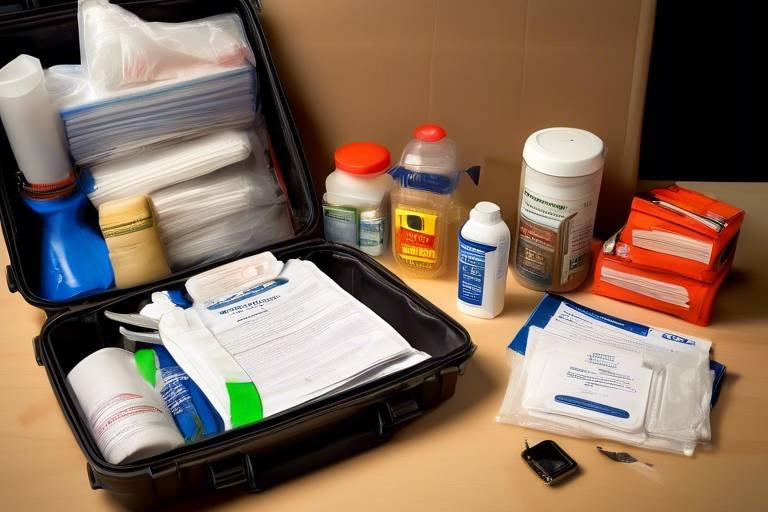Navigating the Risks of Medical Tourism: A Safety Guide
Medical tourism is an increasingly popular option for patients seeking affordable and specialized healthcare services. However, while the allure of lower costs and advanced treatments abroad can be tempting, it's crucial to navigate the potential hazards that come with this journey. This guide aims to shed light on the risks associated with medical tourism, ensuring that you can make informed decisions and prioritize your safety throughout the process.
At its core, medical tourism involves traveling to another country for medical care. This phenomenon has grown significantly in recent years, driven by factors such as skyrocketing healthcare costs in developed nations, long wait times for procedures, and the availability of advanced medical technologies in various parts of the world. Many patients find themselves asking, "Why not seek treatment abroad?" The answer often lies in the potential for significant cost savings and access to specialized care that may not be available locally.
While the benefits of medical tourism are undeniable, it’s essential to acknowledge the risks that accompany this choice. Common dangers include the possibility of infection during or after procedures, complications arising from surgeries, and the challenge of navigating unfamiliar healthcare systems. Imagine stepping into a hospital where the language, protocols, and even the standards of care differ vastly from what you're used to; it can be a daunting experience.
Not all international healthcare providers meet the same standards as those in your home country. Evaluating the quality of care in foreign facilities is crucial for your safety. Look for hospitals and clinics that are accredited by recognized international bodies, as this can be an indicator of adherence to certain quality standards. Remember, just because a facility is located in a popular destination doesn't mean it guarantees top-notch care.
Thorough research is vital when choosing a healthcare provider abroad. Start by checking online reviews, but don’t stop there; seek recommendations from trusted sources, such as your primary care physician or friends who have traveled for treatment. Make a checklist of questions to ask potential providers, including:
- What are the qualifications of the doctors?
- Is the facility accredited?
- What are the success rates for the procedure you need?
Patients must be aware of their legal rights when seeking treatment abroad. Medical malpractice laws vary significantly from country to country, and understanding these complexities is essential. If something goes wrong, you may find it challenging to seek legal recourse. Familiarize yourself with the local laws and consider consulting with a legal expert who specializes in international medical practices.
Traveling for medical procedures requires careful planning beyond just booking flights and accommodations. You’ll need to consider visa requirements, which can differ based on your destination and the duration of your stay. Additionally, obtaining travel insurance that covers medical emergencies abroad is paramount. Ensure that your policy includes coverage for any complications that may arise from your procedure. Don't forget about post-operative care; plan how you will manage your recovery while away from home.
Preparation is key to a successful medical tourism experience. Before you embark on your journey, gather all necessary medical records and consult with your healthcare professionals at home. They can provide valuable insights into your treatment and help you prepare for any potential risks. It’s also wise to create a detailed itinerary that includes all appointments, procedures, and follow-up visits.
Effective communication with foreign healthcare providers is crucial. Ensure you fully understand your treatment plan, potential risks, and post-operative care instructions. If language barriers exist, consider hiring a medical interpreter or using translation apps to facilitate conversations. Remember, clear communication can significantly enhance your safety and comfort during your medical journey.
After returning home, it's essential to ensure proper follow-up care. Communicate with your local healthcare providers about your treatment abroad, especially if you experience any complications or ongoing treatment needs. Keeping an open line of communication with both your overseas and local healthcare teams can aid in a smoother recovery process.
Q: What is medical tourism?
A: Medical tourism refers to traveling to another country to receive medical treatment, often for cost savings or access to specialized care.
Q: What are the risks associated with medical tourism?
A: Risks include potential infections, complications from procedures, and challenges in navigating foreign healthcare systems.
Q: How can I ensure the quality of care abroad?
A: Research healthcare providers, check for accreditations, and seek recommendations from trusted sources.
Q: What should I consider when planning my medical trip?
A: Consider visa requirements, travel insurance, post-operative care, and effective communication with healthcare providers.

Understanding Medical Tourism
Medical tourism is a fascinating and rapidly growing phenomenon that involves traveling to another country for healthcare services. Imagine being able to combine a vacation with a medical procedure; it sounds appealing, right? Over the past few decades, the concept has gained significant traction as patients seek affordable and specialized care outside their home countries. With the rising costs of healthcare in many developed nations, individuals are increasingly looking beyond their borders to find treatments that fit their budget and needs.
But what exactly drives this trend? There are several compelling reasons why people choose to become medical tourists. First and foremost is the **cost savings**. In many cases, patients can save up to 70% on procedures compared to prices in their home countries. For example, a heart bypass surgery that may cost $100,000 in the United States can be performed for as little as $30,000 in countries like India or Mexico. This significant price difference is often due to lower labor costs and the economies of scale in hospitals abroad.
Additionally, patients may seek access to **specialized care** that is either unavailable or has long waiting lists in their home countries. For instance, certain treatments, such as cosmetic surgery or dental procedures, might be offered at a higher quality and lower price in destinations known for these services. Countries like Thailand and Costa Rica have built reputations as go-to places for cosmetic and dental tourism, attracting countless individuals who want to enhance their appearance without breaking the bank.
Moreover, some patients are drawn to destinations that offer cutting-edge medical technology or innovative treatments that are not yet available in their home countries. This is particularly true for procedures related to stem cell therapy or alternative treatments for chronic conditions. The allure of being at the forefront of medical advancements can be incredibly enticing.
However, it’s essential to recognize that medical tourism is not without its challenges. Navigating the complexities of healthcare systems in foreign countries can be daunting. Language barriers, cultural differences, and varying standards of care can lead to confusion and miscommunication. Therefore, potential medical tourists must do their homework, ensuring they understand what to expect and how to prepare for their journey.
In conclusion, while medical tourism offers a unique opportunity to access affordable and specialized healthcare, it requires careful consideration and planning. By understanding the underlying motivations and potential pitfalls, patients can make informed decisions that lead to successful outcomes. As you embark on this journey, remember that knowledge is power, and the more you know, the safer and more rewarding your medical tourism experience will be.

Potential Risks of Medical Tourism
While the allure of medical tourism is undeniable, it’s essential to peel back the layers and recognize the potential risks that come with seeking treatment abroad. Imagine you're embarking on a journey to a foreign land, excited about the prospect of affordable healthcare, but suddenly, you find yourself in a maze of unfamiliar medical protocols and regulations. The risks can range from infections and complications from procedures to the daunting task of navigating an entirely different healthcare system.
One of the most pressing concerns is the risk of infection. Hospitals and clinics in certain countries may not adhere to the same stringent hygiene practices that you might expect at home. This can lead to post-operative infections that could complicate your recovery. In fact, according to various studies, the rate of surgical site infections can be significantly higher in some regions compared to others. This is a critical factor to consider when choosing your destination.
Another risk involves the quality of care. Not all healthcare providers abroad meet the same standards as those in your home country. It’s a bit like buying a car without a test drive; you might end up with something that looks good on the outside but is riddled with problems under the hood. Evaluating the quality of care is paramount. You should look for facilities that are accredited by reputable organizations, as this often serves as a benchmark for quality and safety.
Additionally, the complexities of navigating foreign healthcare systems can be overwhelming. Each country has its own set of regulations, practices, and patient rights. This can make it challenging to know what to expect in terms of treatment, costs, and legal recourse if something goes wrong. For instance, if you experience complications after a procedure, understanding who is liable and how to seek redress can be a daunting task. Medical malpractice laws vary widely, and what might be a straightforward case at home could become a legal quagmire abroad.
In terms of logistics, traveling for medical procedures requires careful planning. You must consider travel insurance that covers medical complications, as well as the potential need for a visa. Some patients overlook the importance of post-operative care while abroad, which can lead to serious issues if complications arise. It’s crucial to have a plan in place for follow-up appointments and care, both in the foreign country and upon returning home.
In summary, while medical tourism can offer significant benefits, it's crucial to approach it with caution and thorough preparation. By being aware of the potential risks, you can take proactive steps to mitigate them and ensure a safer, more successful experience. Remember, knowledge is power, and being informed can make all the difference in your journey toward better health.
- What are the most common risks associated with medical tourism? The most common risks include infections, complications from procedures, and challenges in navigating foreign healthcare systems.
- How can I ensure the quality of care in a foreign hospital? Look for accredited facilities and read reviews or seek recommendations from trusted sources.
- What should I do if I experience complications after returning home? Communicate with your local healthcare provider and ensure you have a follow-up plan in place.
- Is travel insurance necessary for medical tourism? Yes, having travel insurance that covers medical complications is highly recommended.
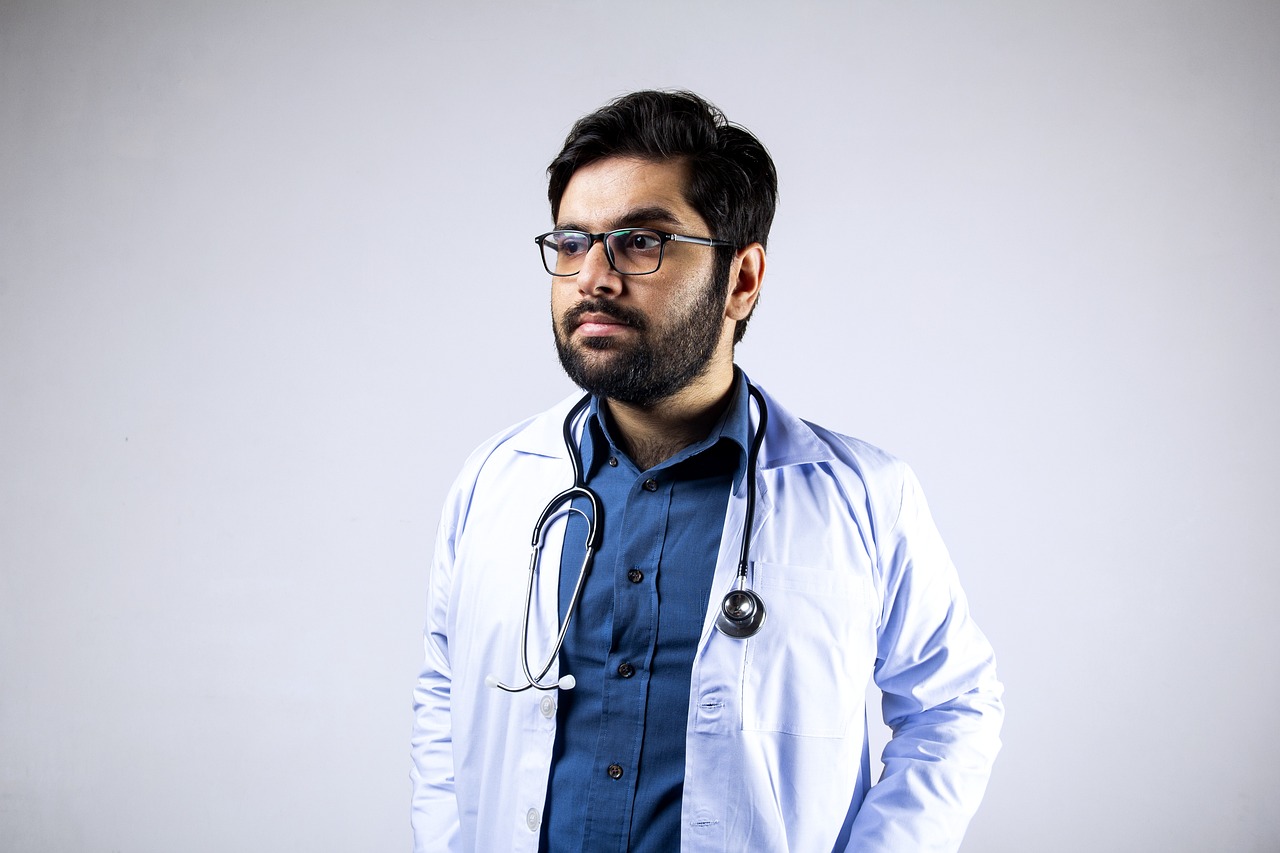
Quality of Care Concerns
When it comes to medical tourism, one of the most pressing issues that patients face is the quality of care they can expect from healthcare providers abroad. While many countries offer enticing packages for procedures at a fraction of the cost, the reality is that not all healthcare facilities meet the same stringent standards as those in your home country. This discrepancy can lead to serious complications, which is why it’s crucial to do your homework before making any decisions.
First and foremost, understanding the accreditation of a medical facility is vital. Accreditation is like a stamp of approval, indicating that a hospital or clinic has met specific quality standards set by recognized organizations. For example, the Joint Commission International (JCI) is a well-regarded body that evaluates and accredits healthcare organizations worldwide. Facilities that have achieved JCI accreditation typically adhere to high standards in patient safety, quality of care, and operational efficiency. Therefore, when searching for a healthcare provider, always check if they are accredited and by whom.
Another factor to consider is the expertise of healthcare professionals. It's essential to research the qualifications of the doctors and specialists who will be performing your procedures. Look for their educational background, years of experience, and any specialties or certifications they may hold. Many reputable clinics will provide this information on their websites, but don’t hesitate to ask directly if you can’t find it. After all, you wouldn’t want just anyone performing surgery on you; you want someone who is highly skilled and experienced in their field.
In addition to accreditation and qualifications, it’s also wise to look into patient reviews and testimonials. These can provide invaluable insight into the experiences of others who have undergone similar procedures at the facility you’re considering. Websites dedicated to medical tourism often feature reviews, and social media platforms can also be useful for gathering real-time feedback. Keep an eye out for consistent patterns in the reviews; if multiple patients mention issues such as long wait times, poor communication, or complications during recovery, these red flags should not be ignored.
Lastly, don't underestimate the importance of communication. It’s essential that you feel comfortable discussing your health concerns and treatment options with your healthcare provider. Language barriers can complicate this process, so consider facilities that offer multilingual staff or translation services. Clear communication can significantly enhance your understanding of the treatment plan, potential risks, and aftercare instructions, ultimately leading to a more successful outcome.
In summary, while medical tourism can offer significant benefits, it’s crucial to navigate the waters carefully. By focusing on accreditation, professional qualifications, patient feedback, and effective communication, you can help ensure that your experience is not only safe but also successful. Remember, investing time in research today can save you from potential complications tomorrow.
- What should I look for in a healthcare provider abroad? Look for accreditation, qualified professionals, and positive patient reviews.
- How can I verify a facility's accreditation? Check their website or contact them directly for accreditation details.
- What if I face language barriers? Seek facilities that provide multilingual staff or translation services.
- Are there risks associated with lower-cost procedures? Yes, lower costs may sometimes correlate with lower quality care; thorough research is essential.

Researching Healthcare Providers
When it comes to medical tourism, the importance of thorough research cannot be overstated. Choosing the right healthcare provider abroad is akin to selecting a trusted partner for a significant life event; you wouldn’t rush into it without doing your homework, right? The stakes are high, and ensuring that you receive quality care is paramount. Start by identifying reputable hospitals and clinics that cater to international patients. One effective way to do this is to look for facilities that have received accreditation from recognized organizations, such as the Joint Commission International (JCI) or the International Organization for Standardization (ISO). These accreditations serve as a stamp of approval, indicating that the facility adheres to high standards of care.
In addition to accreditation, patient reviews can provide invaluable insights. Websites like Healthgrades or RealSelf allow patients to share their experiences. Look for patterns in feedback—are there consistent praises or complaints? This can help you gauge the quality of care and service provided. Moreover, seeking recommendations from trusted sources, such as family, friends, or even your local healthcare provider, can lead you to hidden gems in the world of medical tourism.
Another crucial aspect to consider is the expertise of the medical staff. Research the qualifications of the healthcare professionals who will be handling your case. Are they board-certified? Do they have experience treating international patients? A skilled surgeon with a proven track record can make all the difference in your treatment outcomes. Don't hesitate to reach out to the facility to ask about the qualifications and experience of the medical team.
Additionally, consider the language barrier. Effective communication is vital for understanding your treatment plan and addressing any concerns. Check if the healthcare provider offers translation services or if they have English-speaking staff available. Miscommunication can lead to misunderstandings about treatment procedures, risks, and post-operative care, so make sure you’re comfortable with how information will be conveyed.
Finally, it’s wise to evaluate the cost transparency of the healthcare provider. Before committing, request a detailed breakdown of all potential expenses, including consultation fees, procedure costs, and any additional charges for aftercare. This will help you avoid unexpected bills and ensure that your medical journey is as stress-free as possible.
In summary, researching healthcare providers is a multi-faceted process that requires diligence and attention to detail. By focusing on accreditation, patient reviews, staff qualifications, language support, and cost transparency, you can significantly enhance your chances of having a safe and successful medical tourism experience.
- What is medical tourism? Medical tourism refers to traveling abroad to receive healthcare services, often for cost savings or access to specialized treatments.
- How do I find a reputable healthcare provider abroad? Look for accredited facilities, read patient reviews, and seek recommendations from trusted sources.
- What should I consider when communicating with foreign healthcare providers? Ensure they have English-speaking staff, and don't hesitate to ask questions about your treatment plan and aftercare.
- What are the risks associated with medical tourism? Risks include potential complications from procedures, infection, and challenges related to navigating foreign healthcare systems.
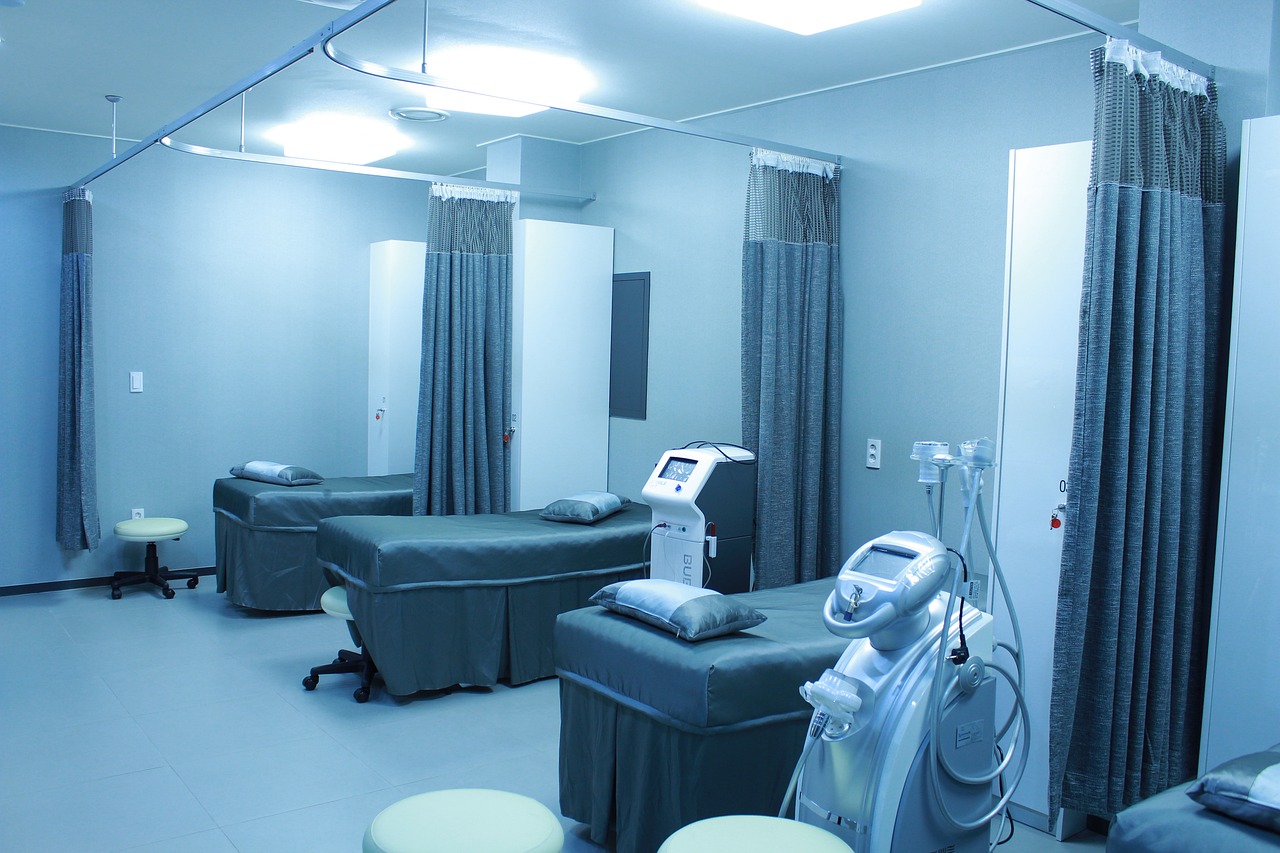
Understanding Legal Recourse
When embarking on a medical tourism journey, it's vital for patients to be aware of their legal rights and the complexities that come with seeking treatment abroad. Unlike your home country, where healthcare laws are often well-defined, navigating the legal landscape in a foreign country can feel like venturing into uncharted waters. What happens if something goes wrong? Who is held accountable? These questions can haunt any traveler considering medical procedures outside their home borders.
First and foremost, it's essential to understand that medical malpractice laws vary significantly from one country to another. In some places, the legal framework is robust, offering patients a clear path to justice in the event of negligence. In others, however, the laws may be less stringent, leaving patients with limited options for recourse. For instance, in countries with less developed legal systems, proving malpractice can be a daunting task, often requiring a deep understanding of local laws and regulations.
Moreover, many patients are unaware that they may be required to sign waivers or consent forms that limit their ability to seek legal action in the event of complications. These documents can often be filled with legal jargon that obscures the rights of the patient. As a savvy medical tourist, it’s crucial to read every document thoroughly and seek clarification on any points that seem ambiguous. Never hesitate to ask questions—after all, you are entrusting your health to these professionals.
To help you navigate this complex terrain, here are some key considerations:
- Research Local Laws: Before traveling, take the time to understand the legal environment in your destination country. Look into how they handle medical malpractice and patient rights.
- Consult Legal Experts: If you're planning significant procedures, consider consulting a legal expert who specializes in international medical law. They can provide insights specific to your situation.
- Document Everything: Keep detailed records of your medical treatment, including consent forms, medical records, and any correspondence with healthcare providers. This documentation can be invaluable if you need to pursue legal action.
In addition to understanding the laws of the country where you’re receiving treatment, it’s also wise to know the policies of your home country regarding medical tourism. Some nations have established guidelines or resources for citizens seeking care abroad, which can be beneficial in understanding your rights and responsibilities. For example, the U.S. Department of State provides resources that can help Americans navigate international healthcare, including tips on how to find reputable providers and what to do if complications arise.
Ultimately, while the prospect of receiving care abroad can be enticing, it’s essential to approach it with a clear understanding of the potential legal ramifications. Being informed and prepared can make all the difference in ensuring a safe and successful medical tourism experience.
- What should I do if I experience complications after medical treatment abroad?
If you encounter complications, first seek immediate medical attention. Document everything and consult with a legal expert familiar with international medical law to understand your rights and options.
- Can I sue a foreign healthcare provider?
Yes, but the process can be complex and varies by country. It's crucial to understand the local laws and possibly seek legal counsel.
- How can I protect myself legally before traveling for medical treatment?
Research the legal environment of your destination, consult legal experts, and ensure you have comprehensive medical documentation.

Travel Considerations for Medical Tourists
When you decide to embark on the journey of medical tourism, planning is not just a luxury; it's a necessity. Imagine preparing for a trip where your health is on the line—it’s a bit like packing for a vacation, but with a twist of medical urgency. You need to consider several factors to ensure your experience is as smooth as possible. First and foremost, visa requirements can vary significantly from one country to another. Some countries may require specific medical visas, while others might allow you to enter on a tourist visa. It’s crucial to check the regulations well in advance to avoid any last-minute hiccups that could delay your treatment.
Next on the list is travel insurance. This is not just a safety net; it’s your lifeline when traveling for medical procedures. Make sure your insurance covers international medical care, including potential complications that may arise post-surgery. You wouldn’t want to be stuck with a hefty bill in a foreign country, right? Additionally, some insurance policies may even cover the costs of follow-up care, which is invaluable.
Another important aspect to consider is the post-operative care you’ll need once your treatment is complete. It’s essential to have a clear understanding of what your recovery process will entail. Will you need assistance during your recovery? How will follow-up appointments be handled? Knowing the answers to these questions can save you a lot of stress. If your procedure requires a longer recovery time, ensure you have accommodations that are conducive to healing, such as a quiet space and access to necessary medical supplies.
Lastly, don’t forget about communication. When you arrive at your destination, you’ll want to be able to communicate effectively with your healthcare providers. Consider downloading translation apps or hiring a local interpreter if necessary. Clear communication can significantly reduce the risk of misunderstandings regarding your treatment plan or post-operative care instructions.
In summary, navigating the travel considerations for medical tourism involves a blend of research, preparation, and communication. By taking these steps, you can help ensure that your medical journey is not only successful but also as stress-free as possible. Remember, this is about your health, and every detail counts!
1. What should I do if I encounter issues with my treatment abroad?
If you face any complications or issues, contact your healthcare provider immediately. It's also advisable to consult with a local medical professional who can assist you.
2. How can I ensure my safety while traveling for medical care?
Research your destination thoroughly, check the accreditation of the healthcare facility, and ensure you have comprehensive travel insurance.
3. Are there any specific vaccinations I need before traveling?
Depending on your destination, certain vaccinations may be recommended. Consult with your healthcare provider for personalized advice.
4. What if I don’t speak the local language?
Consider using translation apps or hiring an interpreter to facilitate communication with healthcare professionals.
5. How can I manage post-operative care once I’m back home?
Ensure you have a follow-up plan in place with your local healthcare provider, and communicate your treatment history and any ongoing needs clearly.

Preparing for Your Medical Trip
Preparing for your medical trip is akin to planning a significant journey; it requires careful consideration and attention to detail. First and foremost, gathering your medical records is essential. This includes any relevant health information, previous treatments, and current medications. Having these documents readily available not only aids the foreign healthcare provider in understanding your medical history but also helps in ensuring that you receive appropriate care tailored to your needs. Imagine trying to navigate a maze without a map; your medical records serve as that crucial guide.
Next, consulting with your local healthcare professionals is a wise step. They can provide valuable insights into your condition and may even recommend reputable facilities abroad. This conversation is not just about getting a second opinion; it’s about ensuring that you have a comprehensive understanding of your treatment options. It’s like having a trusted friend who knows the lay of the land when you’re exploring unfamiliar territory.
Another critical aspect of preparation involves understanding the healthcare system in the country you are visiting. Each country has its own set of regulations, practices, and standards of care. For instance, what is considered routine in one country may not be in another. To illustrate, let’s take a look at a comparison of healthcare quality indicators across different regions:
| Country | Accreditation Standards | Patient Satisfaction Rate |
|---|---|---|
| Thailand | Joint Commission International (JCI) | 85% |
| India | National Accreditation Board for Hospitals (NABH) | 80% |
| Mexico | General Health Council | 75% |
This table highlights the importance of accreditation and patient satisfaction as indicators of quality care. When you know what to look for, it becomes easier to make informed decisions about where to seek treatment.
Additionally, don’t forget to consider travel insurance. This is not just a safety net; it’s a vital resource that can cover unexpected complications, cancellations, or emergencies that may arise during your trip. Think of it as a parachute; you hope you won’t need it, but it’s reassuring to know it’s there just in case.
Lastly, ensure you have a plan for post-operative care. This is often overlooked but is crucial for a smooth recovery. Discuss with your healthcare provider about what to expect after the procedure and how to manage any potential complications. Having a clear plan can help ease your mind and allow you to focus on healing, rather than worrying about what comes next.
In summary, preparing for your medical trip involves much more than just booking a flight and a hotel. It requires a comprehensive approach that includes gathering medical records, consulting with local healthcare providers, understanding the healthcare system in your destination country, securing travel insurance, and planning for post-operative care. By taking these steps, you can embark on your medical journey with confidence, knowing you’ve done your homework and are ready for whatever comes your way.
- What should I do if I experience complications after returning home? Contact your local healthcare provider immediately and inform them about your recent procedure.
- How can I find reputable healthcare providers abroad? Research online, read reviews, and seek recommendations from trusted sources.
- Is travel insurance necessary for medical tourism? Yes, it is highly recommended to protect yourself against unforeseen circumstances.
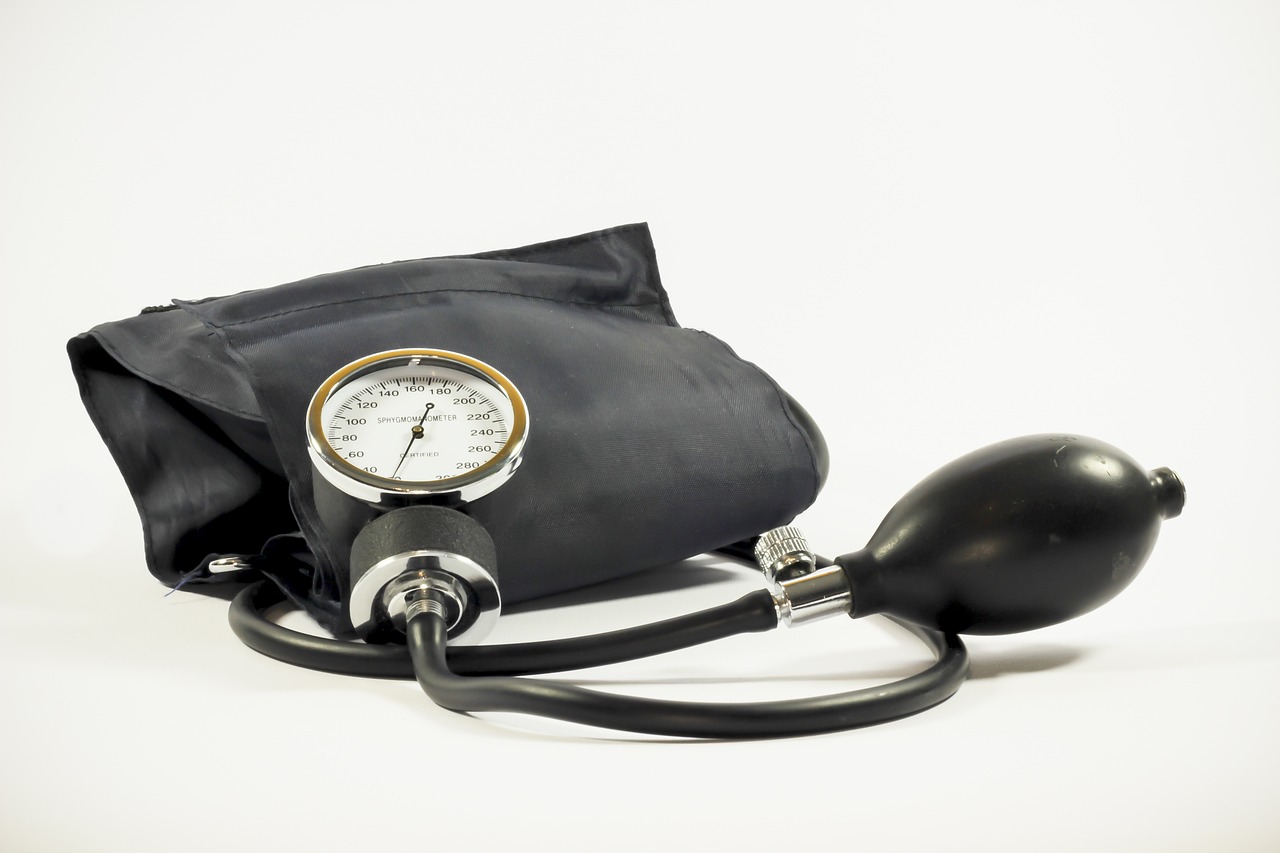
Communicating with Healthcare Providers
When you embark on your medical tourism journey, one of the most critical aspects to consider is effective communication with healthcare providers. Imagine stepping into a foreign hospital, where the staff speaks a different language, and the medical jargon is as foreign as the culture itself. It can be daunting, but with the right approach, you can navigate this challenge successfully. First and foremost, it's essential to ensure that you fully understand your treatment plan. This means asking questions, no matter how trivial they may seem. Don’t hesitate to seek clarification on procedures, medications, and expected outcomes. After all, your health is on the line!
Another significant hurdle can be the language barrier. If you don’t speak the local language, consider bringing a translator or using translation apps to facilitate communication. Many hospitals in popular medical tourism destinations are accustomed to international patients and may offer translation services. However, relying solely on these services might not always be sufficient, especially when discussing complex medical information. Therefore, having a trusted person who can help bridge the communication gap can be invaluable.
Moreover, be proactive in discussing potential risks associated with your treatment. It's crucial to have an open dialogue about what could go wrong and how these complications would be addressed. This not only helps you prepare mentally for the procedure but also builds trust between you and your healthcare provider. A good rule of thumb is to keep a list of questions handy, so you don’t forget anything during your consultations. Here are a few key questions you might consider asking:
- What are the risks associated with the procedure I’m considering?
- What should I expect during recovery?
- How will my post-operative care be managed?
- What are the qualifications of the medical team performing my procedure?
Additionally, it’s essential to discuss your medical history in detail. Be transparent about any pre-existing conditions, allergies, or previous surgeries. This information is vital for your healthcare provider to tailor the best treatment plan for you. Remember, they are not mind readers, and the more information you provide, the better equipped they will be to care for you.
Finally, after your procedure, maintaining communication with your healthcare provider is equally important. Ensure you understand the follow-up care instructions and how to contact them in case of complications. If you have any concerns post-surgery, don’t hesitate to reach out, even if you’ve returned home. Your health should always come first, and a good healthcare provider will appreciate your diligence in following up.
Here are some common questions that patients typically have regarding communication with healthcare providers abroad:
- How can I ensure my questions are answered? Make a list of questions before your appointment and ask for clarification whenever needed.
- What should I do if there is a language barrier? Consider hiring a translator or using translation apps to facilitate communication.
- How can I verify the credentials of my healthcare provider? Research the hospital's accreditation and the provider's qualifications before your trip.

Post-Procedure Care and Follow-Up
After undergoing a medical procedure abroad, it’s essential to prioritize post-procedure care and follow-up to ensure a smooth recovery. The journey doesn't end once you leave the hospital; in fact, it marks the beginning of a crucial phase in your healing process. Just like a gardener tends to a plant after planting it, you must nurture your health after treatment. This phase involves monitoring your recovery, managing any potential complications, and ensuring that you have access to the right support.
One of the first steps is to establish a communication line with your healthcare provider back home. This is vital for discussing your recovery progress and any concerns that may arise. It’s like having a lifeline to someone who knows your medical history and can guide you through the post-operative care process. Make sure to share detailed information about the procedure you underwent, including any medications prescribed and care instructions given by your foreign healthcare provider. Keeping a medical journal can be helpful in tracking symptoms, medications, and questions that may come to mind.
Moreover, understanding the signs of complications is crucial. While the majority of procedures go smoothly, it’s important to be aware of potential red flags. Common complications may include:
- Infection: Look for increased redness, swelling, or discharge at the incision site.
- Pain: While some discomfort is normal, severe or worsening pain should be addressed immediately.
- Fever: A high fever could indicate an infection or other complications.
If you notice any of these symptoms, don’t hesitate to reach out to your healthcare provider. They can help you determine whether you need to seek immediate medical attention or if it’s a normal part of the healing process. Remember, it’s better to be safe than sorry!
In addition to monitoring your physical health, it’s also important to consider your emotional well-being. Undergoing a medical procedure can be stressful, and feelings of anxiety or depression may arise. Engaging in relaxation techniques, such as deep breathing exercises or gentle yoga, can be beneficial. Surround yourself with supportive friends or family who can lend an ear or help you with daily tasks as you recover.
Lastly, don’t forget about your follow-up appointments. These are crucial for assessing your recovery and addressing any ongoing treatment needs. Schedule these appointments well in advance, and ensure that your local healthcare provider is aware of your medical history and the procedure you had done abroad. Having a clear plan for follow-up care will help bridge the gap between your treatment abroad and your ongoing health management at home.
1. How long should I wait before traveling back home after a medical procedure?
It's advisable to stay in the country where you received treatment for at least a few days, or as recommended by your healthcare provider, to ensure that any immediate post-operative care can be managed effectively.
2. What should I do if I experience complications after returning home?
Contact your healthcare provider immediately. They can provide guidance on how to manage your symptoms and whether you need to be seen in person.
3. How can I ensure effective communication with my local healthcare provider?
Before leaving the foreign facility, ask for a detailed summary of your treatment, including any medications and follow-up care instructions. Share this information with your local provider to ensure continuity of care.
4. Is it necessary to have a follow-up appointment after returning home?
Yes, follow-up appointments are essential to monitor your recovery and address any ongoing treatment needs. Schedule these as soon as possible after your return.
Frequently Asked Questions
- What is medical tourism?
Medical tourism refers to the practice of traveling to another country to receive medical care. This could be for various reasons, including lower costs, access to specialized treatments, or shorter waiting times for procedures.
- What are the main risks associated with medical tourism?
While medical tourism can offer significant benefits, it also comes with risks such as potential infections, complications from procedures, and difficulties navigating foreign healthcare systems. It's crucial to weigh these risks against the benefits before making a decision.
- How can I ensure the quality of care in a foreign healthcare facility?
To ensure quality care, research the healthcare facility thoroughly. Look for accreditation from recognized organizations, read patient reviews, and seek recommendations from trusted sources. This can help you identify reputable hospitals and clinics abroad.
- What should I consider when preparing for a medical trip?
Preparation is key! Make sure to obtain your medical records, consult with your healthcare provider about the procedure, and check visa requirements. Additionally, consider travel insurance that covers medical emergencies and post-operative care.
- How do I communicate effectively with foreign healthcare providers?
Effective communication is essential. Ensure you understand your treatment plan and any potential risks. If language barriers exist, consider using a translator or asking for written instructions in your language to avoid misunderstandings.
- What should I do for post-procedure care after returning home?
After returning home, it's important to follow up with your local healthcare provider. Discuss any complications or ongoing treatment needs to ensure a smooth recovery. Keeping your doctor informed will help manage your health effectively.
- What legal protections do I have when seeking treatment abroad?
Legal protections can vary greatly by country. It's essential to understand the medical malpractice laws in the country where you're receiving treatment. Research the legal recourse available to you in case of complications or unsatisfactory care.









